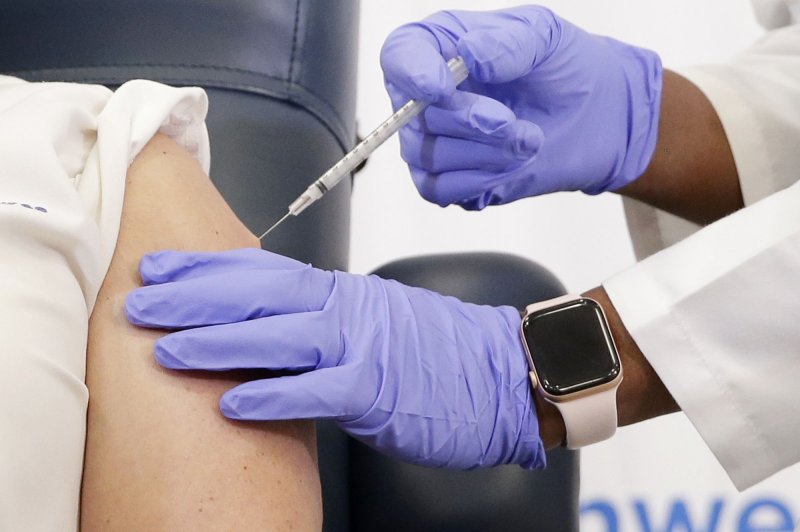
Aug. 4 (UPI) — The COVID-19 vaccine rarely causes disease flares in people with rheumatoid arthritis and lupus, according to a study published Wednesday by the journal Arthritis and Rheumatology.
Just 11% of adults with these diseases, which are autoimmune disorders caused by the immune system attacking healthy tissue in error, reported flares in symptoms that required treatment after vaccination, the data showed.
In addition, no reports of severe flares occurred, the researchers said.
“Our findings demonstrate that the vaccines are safe,” study co-author Dr. Caoilfhionn Connolly said in a press release.
“[They] should alleviate the safety concerns of any hesitant patients,” said Connolly, a post-doctoral research fellow and rheumatologist at Johns Hopkins University School of Medicine in Baltimore.
Examples of rheumatic and musculoskeletal diseases are tendinitis and bursitis, gout, fibromyalgia, psoriatic arthritis, osteoporosis, lupus, rheumatoid arthritis, osteoarthritis and ankylosing spondylitis, according to the World Health Organization.
Collectively, these diseases affect about half of adults in the United States and 75% of those age 65 years and older, based on recent estimates.
During disease flares, people with these diseases typically experience severe joint pain, fatigue and, in some cases, skin rashes, the WHO says.
For this study, Connolly and her colleagues tracked 1,377 adults diagnosed with one or more of these disorders they received both doses of either the Moderna or Pfizer-BioNTech COVID-19 vaccines.
As these vaccines are designed to prime the immune system to respond to the virus by generating antibodies, or cells that fight off infection, against it, researchers asked participants to report how the shots affected their autoimmune disease symptoms.
Nearly 90% of participants reported injection site pain following both the first and second shot, and 60% and 80%, respectively, reported fatigue following the first and second doses, the data showed.
Among the study participants, 11% experienced a flare in symptoms of their rheumatic and musculoskeletal disease symptoms, and about 60% of these flares occurred following receipt of the second dose of the vaccine.
The most common flare symptoms reported following COVID-19 vaccination were worsening joint pain, swelling, stiffness, fatigue and muscle pain.
Flares that required treatment typically lasted 10 days and most resolved following treatment with oral corticosteroids such as prednisone or an increased dose of participants’ current medication, the researchers said.
None of the study participants required hospitalization and none experienced an allergic reaction to the COVID-19 vaccine.
“This study highlights that most of our rheumatic patients tolerated the vaccine well with mostly having local reactions such as injection site pain, which was quite reassuring,” Connolly said.
“[However], most importantly, we did not observe any severe flares of their underlying autoimmune disease,” she said.